Executive Summary
- Align Values and Purpose – The most effective leaders align their personal values with those embodied in their organisation’s mission. Today’s consumers are drawn to companies with a purpose as much as to the products and services they offer.
- Inspire and Empower – Leaders who are willing to get into the trenches when duty calls inspire loyalty and set the right example for their teams, encouraging them to go the extra mile. Delegating decision-making and promoting inclusion and collaboration rather than top-down directives empowers employees to step-up, excel and remain driven.
- Embrace Disruption and Bet on Innovation – Whether leading the disruption or staying close to it, leaders need to be agile and take calculated risks early to put their organisations ahead of the curve. Avant-garde thinking needs to inform strategy and become embedded in the corporate culture and organisational structure for companies to remain innovative. Diverse people with diverse ideas bring the heterogeneity required to fuel innovation.
- Champion Well-being – Companies that promote a healthy work/life balance retain talent longer and post better results. Promoting well-being throughout the organisation is not just the humane thing to do, it’s good business practice.
- Establish a Comprehensive Human Resources Strategy – Providing professional development opportunities that allow employees to build their skillsets as new technologies are introduced should be matched with a robust talent pipeline geared towards retaining cutting-edge expertise.
- Be Authentic, Humble and Honest – Technological innovation requires that leaders be eager to challenge what they already know as humble and curious lifelong learners. Individual honesty and organisational transparency must be demanded throughout a company to promote optimal performance and maintain a collaborative spirit and healthy workplace morale.
Work with Purpose
Technological innovations at Steel giant thyssenkrupp, including novel B2C and ERP platforms, have allowed the company to transform the way it engages with customers and suppliers, differentiating it in the global mining and metals industry and reaffirming its inclusive corporate culture.
thyssenkrupp’s APAC CEO Vivek Bhatia outlined four critical leadership imperatives for the modern era in his keynote address at Kestria’s C-Suite Roundtable in Singapore: set a clear sense of purpose and direction for everyone within the organisation; lead by example and get personally involved to overcome challenges; secure a robust talent pipeline; and ensure alignment of personal and organisational values.
Kestria (formerly IRC Global Executive Search Partners)’ C-Suite Roundtable Discussions in Singapore
Fostering the right corporate culture is paramount in a time characterized by rapid technological change and competition from new, disruptive actors. Technological innovations have led to a “VUCA” environment. The term VUCA was coined in 1987 to represent the volatile, uncertain, complex and ambiguous business environment modern leaders must contend with. Volatility and uncertainty require quick, high-quality decision-making enabled by a free flow of real-time information from different parts of an organization and the empowerment of decision-makers at various levels. Articulating a clear sense of purpose is crucial to build an agile, empowered culture, an engaged workforce and competent and committed leadership teams.
Consumers are increasingly driven by their values as much as by the value of a given product or service. Organisations that embrace a shift in focus from profits to purpose demonstrate that they share the same values. Companies that genuinely care about their employees, their customers and the impact of their products and services on the environment, more readily attract customers and talent to fuel growth.
Iterate and Collaborate
Five-year plans remain a valid exercise, but growth strategies today need to be iterative to accommodate unforeseen changes within a closer horizon. An iterative and inclusive approach to decision-making can help leaders prepare to fine-tune on the fly and keep collaborators aligned and motivated across disciplines. As the delegates convened at Kestria Global’s EMEA summit concluded, strategy should be a daily exercise guided by a simple process: decide, test, learn and refine.
Kestria (formerly IRC Global Executive Search Partners)’ C-Suite Roundtable Discussions in Amsterdam
Victor Servin, CTO at start-up accelerator TheVentureCity, worked with telecom giant Millicom before joining the small Miami-based firm. A panellist at Kestria’s Americas summit, Servin said the fast, inclusive decision-making at start-ups has several benefits over the more laborious process typical of large organisations. While rapid decision-making increases the risk of failure and creates a degree of chaos, there’s more time and resources available for implementation, an acceptable trade-off, even if early attempts may fail, he said.
It may not be realistic to expect large organisations to make decisions hastily or by consensus like a small team of founders, but they can take a page out of the start-up book by employing a more consultative approach, which ultimately encourages the buy-in required for successful and sustainable outcomes, Servin added.
Adapting quickly as the effectiveness of new initiatives becomes apparent requires constant vigilance and introspection. Internal evaluations should be performed more regularly when new technologies are being rolled out and disruptive changes impact business as usual so that leaders understand how their company’s strengths, weaknesses, opportunities and threats (SWOT) are being affected by external factors in flux.
No company can predict with certainty innovations that will make its products or services obsolete, but those that understand their strengths, anticipate what the market will demand tomorrow and plan for a range of most likely scenarios will undoubtedly rebound quicker when they stumble and get it right enough of the time to remain in business. Those that take their cues from the innovators only after their advances have been proven worthwhile will “be left in the dust”, according to proAXIS President Philippe Kuperman, who also participated in Kestria Global’s C-Suite Roundtable in Miami.
Embrace Disruption
Technological innovations are changing the way business is done across virtually every industry. More and more companies are redefining themselves as innovators. Fundamentally important industries from retail to energy are being turned upside down as innovations revolutionize the way people live, get around and consume. Automation, cloud computing, data analytics, robotics, artificial intelligence and machine learning are becoming commonplace, altering work-flows, creating new talent needs and requiring novel business strategies, even at the most traditional companies.
Take Royal DSM, which participated in Kestria Global’s APAC summit, for example. The company has evolved to meet the challenges of modern times by diversifying and embracing technological innovation. Founded by the Dutch government in 1902 to mine coal, the listed company outgrew its original purpose, diversified into science, nutrition and materials and redefined itself under the motto, People, Planet and Profit. In 2018, DSM reaffirmed its purpose-led, performance-driven strategy having grown to EUR 10bn in net sales and 23,000 employees. Born to extract fossil fuel, the company now meets 100% of its energy needs from renewable sources.
Take Risks and Innovate
Over the past five years, the attitude towards innovation has shifted from a predominantly wait-and-see approach to one where more and more companies describe themselves as innovation pioneers, according to global research and advisory firm Gartner. In 2013, only 27% of respondents polled by Gartner described their firms as innovation pioneers, while 37% described themselves as mainstream players that adopt new industry trends only after they’ve been proven. Five years later, 41% describe themselves as leading new industry trends, while the percentage describing themselves as mainstream players fell to 27%.
Kestria (formerly IRC Global Executive Search Partners)’ C-Suite Roundtable Discussions in Miami
“If you are expecting people to respond in a certain way, you have to do it first,” said Kuperman. Today’s leaders must be flexible, embrace change and new technologies. Business leaders should “grab the bull by the horns” to lead disruption, said Kuperman, or adapt quickly when they don’t.
Even companies that provide goods and services to traditional segments need to be agile to stay abreast of disruptive changes to remain relevant and exploit new growth opportunities. International Hotel Supply Company, a participant in Kestria Global’s APAC Roundtable in Singapore, for example, historically marketed its linens directly to hospitality groups. The growth of Airbnb prompted the company to adapt and develop a B2C platform to ensure it didn’t miss out on a new, high growth niche of the hospitality industry that didn’t even exist a decade earlier.
Champion Well-being
The importance of moral leadership and the challenge of attracting and engaging talent highlight the need for companies to support a healthy work/life balance and for leaders to connect, collaborate and achieve through influence rather than by imposing authoritative control. Effective leaders employ these kinds of “soft skills” as much as they rely on “hard” technical skills to steer their organizations.
Enshrine Honesty
A purpose-driven organization is logically one that enshrines honesty. Honest people, authentic voices and genuine products are magnetic. Leaders who channel honesty and authenticity in their behaviour and communication have a natural appeal and make a lasting impression that engenders loyalty. Authenticity means staying true to core values even when business strategies require a company to adapt.
Honesty is critical if a leader wants buy-in from staff, noted proAXIS President Philippe Kuperman. “A leader, in order to be credible, must come across as honest to earn the respect of the rest of the organisation,” he said. That honesty must be conveyed throughout the company by formulating clear messages and communicating directly with the entire staff, top to bottom, he added.





